Jo Cruise can never forget what she went through, giving birth to her three-year-old daughter.
Broken physically and mentally, it was the kind of experience every expectant mother dreads. Which makes the word Jo uses when describing it very surprising.
Lucky.
She feels lucky that, amid the agony, she felt a surge of love holding her daughter for the first time. Lucky that her daughter’s early years have not been tainted by her birth. And, yes, lucky that they are both alive.
‘I frequently hear women use the word lucky when it comes to giving birth and I often think of myself as lucky,’ says Jo.
Why? Some 18 months after her daughter’s birth, Jo was reading a report into maternity care in the UK. One line caught her attention. The single biggest killer of mothers between six weeks and 12 months post-partum is suicide.
She says: ‘Learning that did something to me because I could see how I could have been one of those women.
‘At the most vulnerable moment of our lives, women were being failed in the most profound way. And it felt like no one was doing anything about it.’
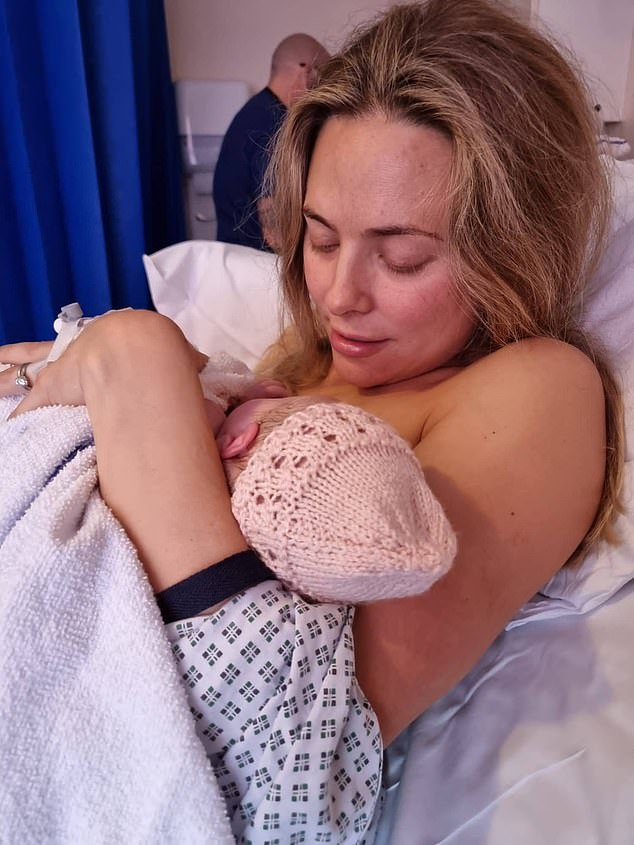
Jo Cruise (pictured) suffered the kind of experience every expectant mother dreads when she gave birth to her daughter

Jo is one of the women nominated in the Daily Mail’s 2025 Inspirational Women Awards
That realisation spurred Jo, who lives in Hampshire, on a remarkable mission.
Ten months ago, she founded Delivering Better, a charity calling for greater continuity of care throughout pregnancy and after birth. The campaign’s extraordinary success has seen her nominated in the Daily Mail’s 2025 Inspirational Women Awards.
In September, the group published a survey revealing that one in four new mothers had a negative birthing experience.
Overall, 54 per cent said they had physical health problems while 44 per cent had mental health issues.
‘Underneath the statistics are thousands of mothers broken by births, suffering in silence,’ says Jo, who is now 39 and balances a day job in leadership development with her charity work.
She was thrilled when she discovered she was pregnant in early 2021. With her husband, she enrolled in antenatal classes.
Jo says: ‘My dad is a doctor and I had a sense of respect and trust for the NHS. I just wanted my daughter to be safe. For myself, I didn’t want to be in unmanaged pain.’
She is all too aware of the irony in these words.
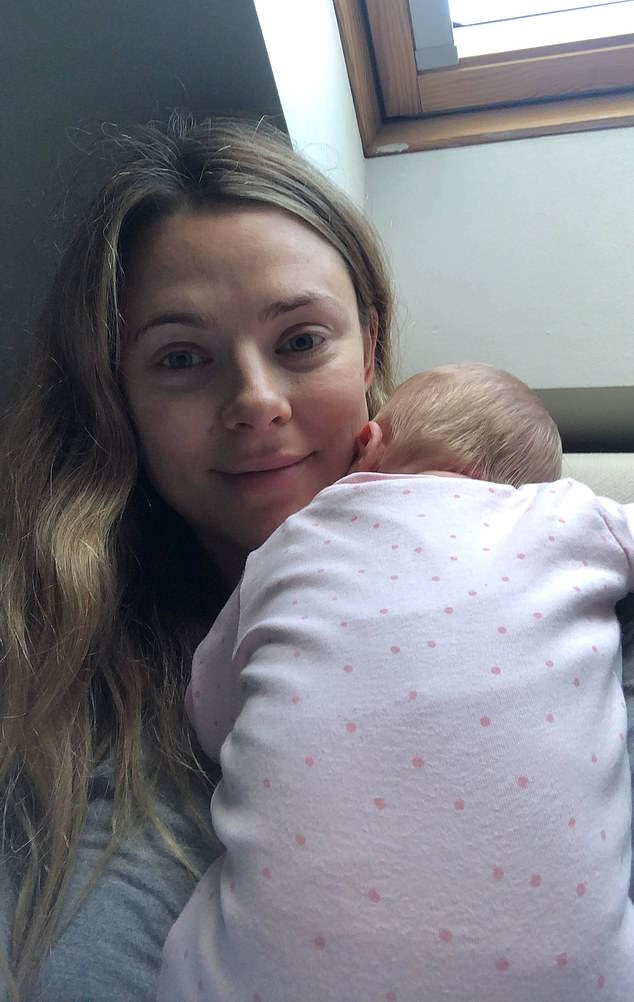
Jo, a former teacher, founded Delivering Better, a charity calling for greater continuity of care throughout pregnancy and after birth
Jo’s contractions began on a Saturday evening in October 2021. She laboured at home until the following evening, when she went to hospital.
There, she was judged not sufficiently dilated to proceed further and was sent home. By the time she returned to hospital on Monday morning, she had endured two sleepless nights and was ‘almost unconscious with pain’.
The former teacher begged for pain relief and was given a cannula in preparation for an epidural. But she was then told she would have to wait.
Distressed, she told midwives she had not been able to pass urine for hours – something that can increase the risk of later bladder problems and make birth more difficult – but was ignored.
She was not on a labour ward, no monitoring of mother or baby was being done and only her husband was with her when she started to feel the urge to push.
When midwives arrived, Jo was told she was fully dilated – but there was now no time for an epidural. She would need an episiotomy, an incision through the perineum, to help her baby arrive.
‘Then I was told there was no time for that either, I was basically going to have to split myself in half,’ say Jo.
‘Midwives realised my daughter was in distress and would need to be delivered quickly. I remember this moment of knowing this would mean doing something terrible to my body.’
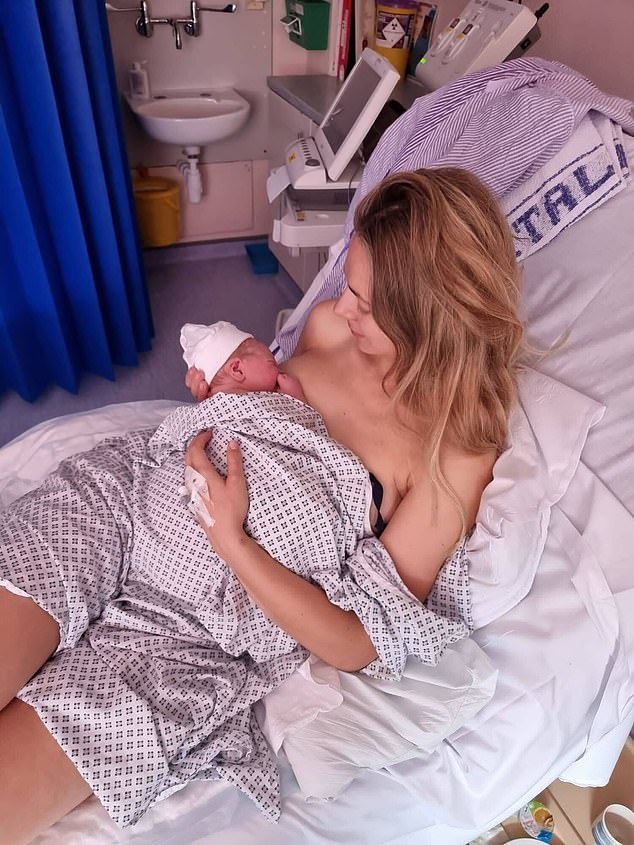
The pain that Jo suffered while giving birth to her daughter would leave her with serious physical consequences for years
The pain was ‘extraordinary and indescribable’. It would leave her suffering serious physical consequences for years – she still experiences bladder issues.
The situation worsened when an infection in her stitches was repeatedly missed in post-birth check-ups, meaning multiple courses of antibiotics.
The drugs seemed to upset her daughter’s tummy so she stopped breastfeeding temporarily, only to find her milk supply had dwindled when she tried to resume it.
Then there was the debilitating impact of replaying the birth in her mind. Again and again. ‘When I got home I started having hallucinations,’ says Jo. ‘I started seeing insects crawling out of my bedroom wall.
‘It was the day members of our family came to meet our little girl. I remember telling myself I had to get it together, ignore the creatures coming out of the walls and go downstairs. I needed to smile and show I was a good mum.’
It was not until 18 months on, when she told a therapist she was still having flashbacks, that she was diagnosed with PTSD. Getting treatment helped but Jo began to wonder what she could do for others in the same situation.
She says: ‘I was left feeling that something awful had happened to me, and I was going to live with the consequences for the rest of my life.
‘What shifted was when I understood it was avoidable. I just could not understand how this was being allowed to happen.
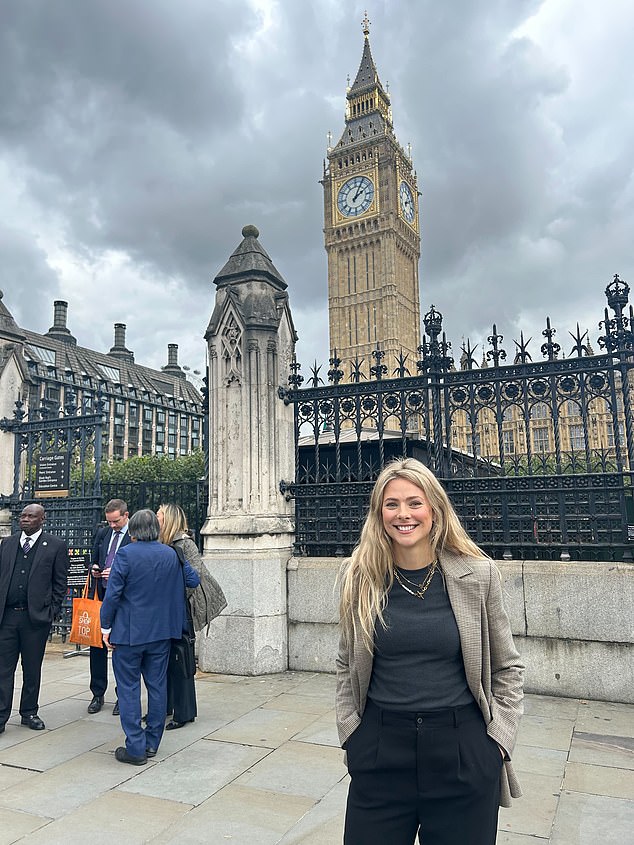
In May last year, Jo posted on Instagram saying she had written a submission to the All-Party Parliamentary Group on Birth Trauma. Within 48 hours, she had joined forces with three other mothers to set up Delivering Better
‘If you think about one in four women having a negative birth experience and 600,000 in England and Wales give birth every year, that’s 150,000 women. That’s a major public health issue.’
In May last year, Jo posted on Instagram saying she had written a submission to the All-Party Parliamentary Group on Birth Trauma. It triggered an outpouring of support. Within 48 hours, she had joined forces with three other mothers to set up Delivering Better.
Today, Jo is a single mother. Her marriage ended suddenly last year and she has no doubt her birth experience played a part.
In happier times, she had hoped for a second child. But now she’s not sure she will ever feel ready. Still, Jo stresses that she feels ‘profoundly grateful’ and fulfilled. And she is steadfast in her desire to effect change.
‘Maternal mortality is at the highest it has been for almost 20 years,’ she says. ‘The only way this is going to change is a coalition effort.
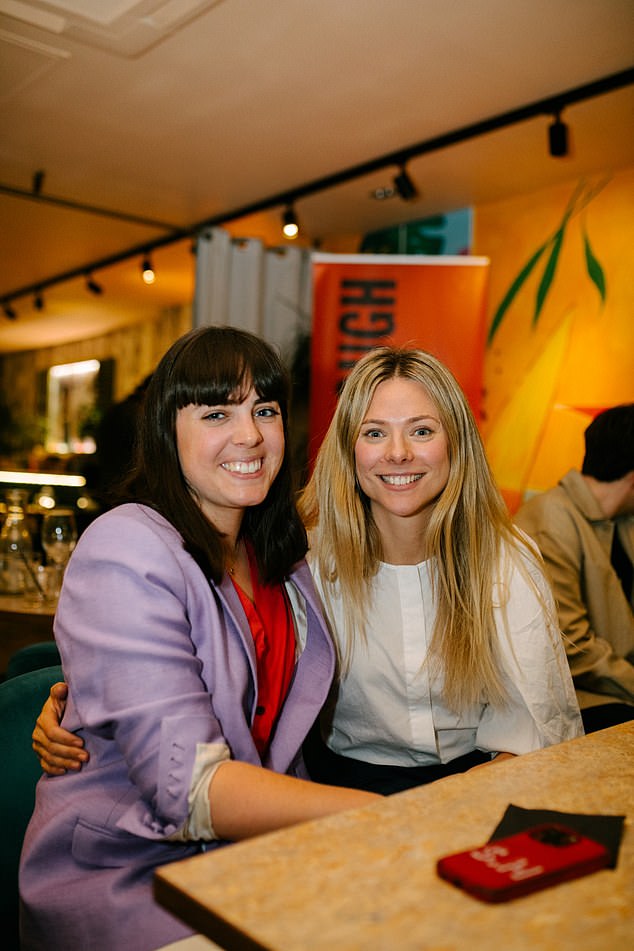
Jo couldn’t raise the alarm when she was giving birth to her own daughter but now, through Delivering Better, she can
‘I should have been listened to. When I said I think I’m going to deliver early. When I went into hospital and said, “I feel uneasy, can I stay?” but was sent home.
‘When I begged them repeatedly for pain relief. When I said, “I think there’s something wrong with my stitches” and I was told to have a shower and eat more meat – when in fact I had a dangerous infection.’
Jo adds: ‘At the most vulnerable moment of my life, I begged for help but was left to feel completely expendable.
‘As hard as I tried, I couldn’t raise the alarm when I was in hospital – but I can now.’
- https://deliveringbetter.org/
Do YOU know an inspirational campaigner, carer or activist? Here’s how to nominate her for our awards
We all know them – the women determined to make a difference in their communities. That might be by raising funds, championing underdogs or campaigning for causes. That’s why we’ve launched the Daily Mail’s Inspirational Women Awards 2025, in partnership with disability charity Sense, and sponsored by Marks & Spencer. We want you to nominate extraordinary women from every walk of life. Five finalists will be chosen to attend a charity gala on Thursday, June 5.
Each winner receives a crystal trophy and a £500 M&S gift voucher. There are no cash alternatives to the prizes. Full terms apply. Read before entering at dailymail.co.uk/inspirationalwomenawards2025.






